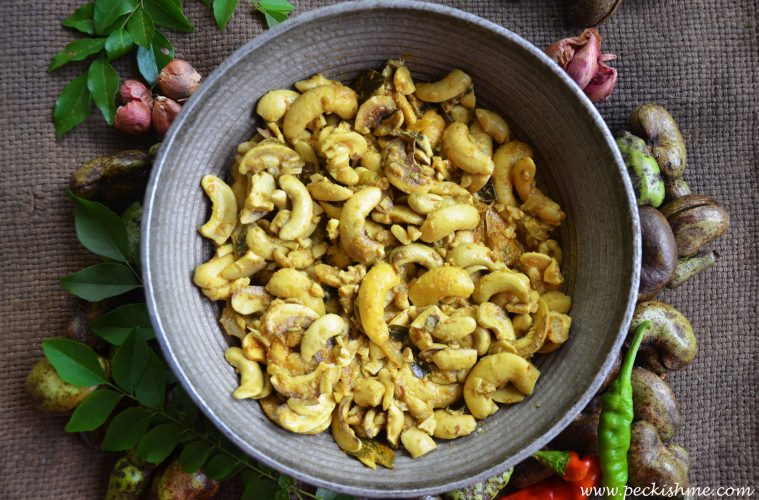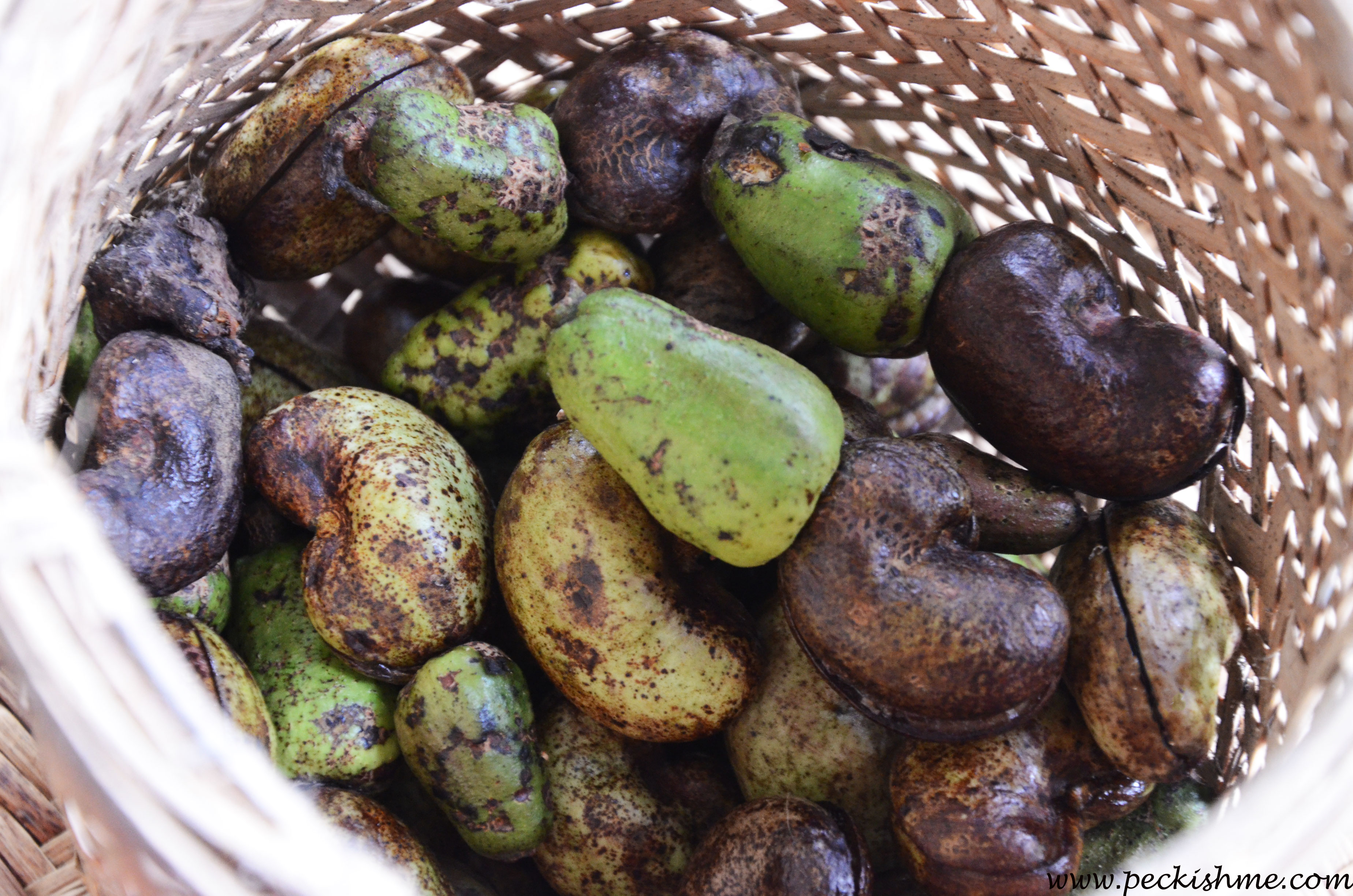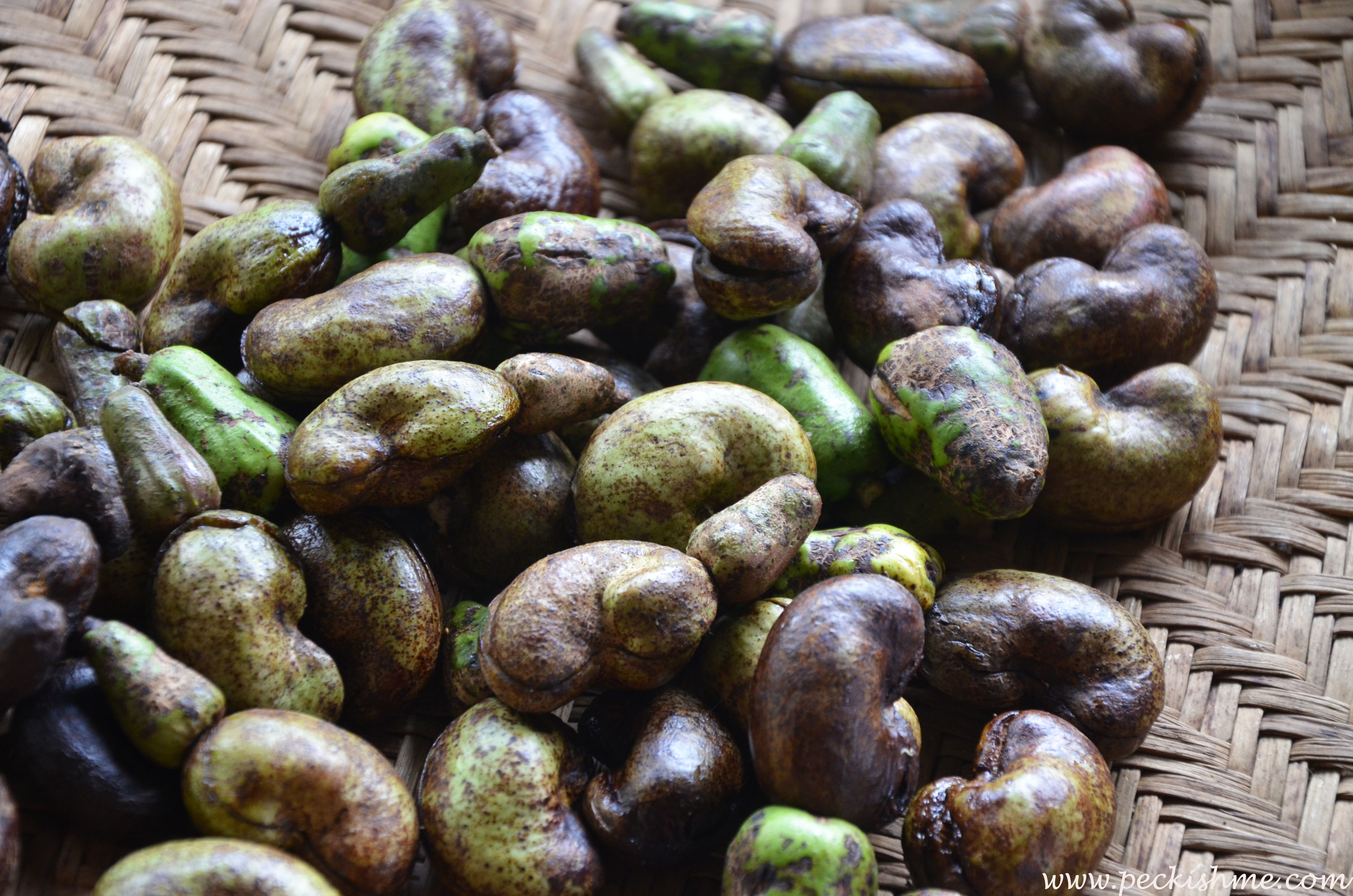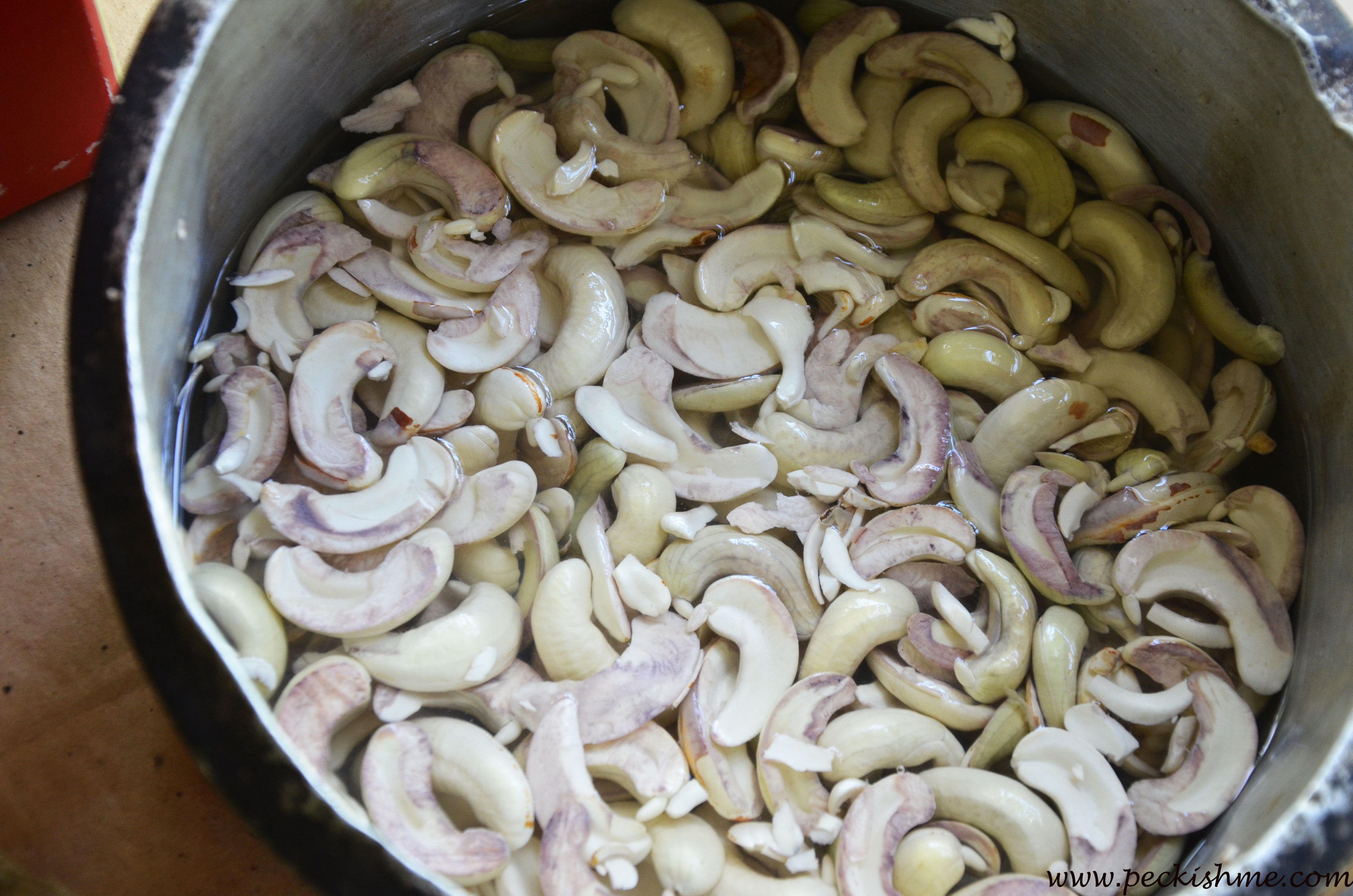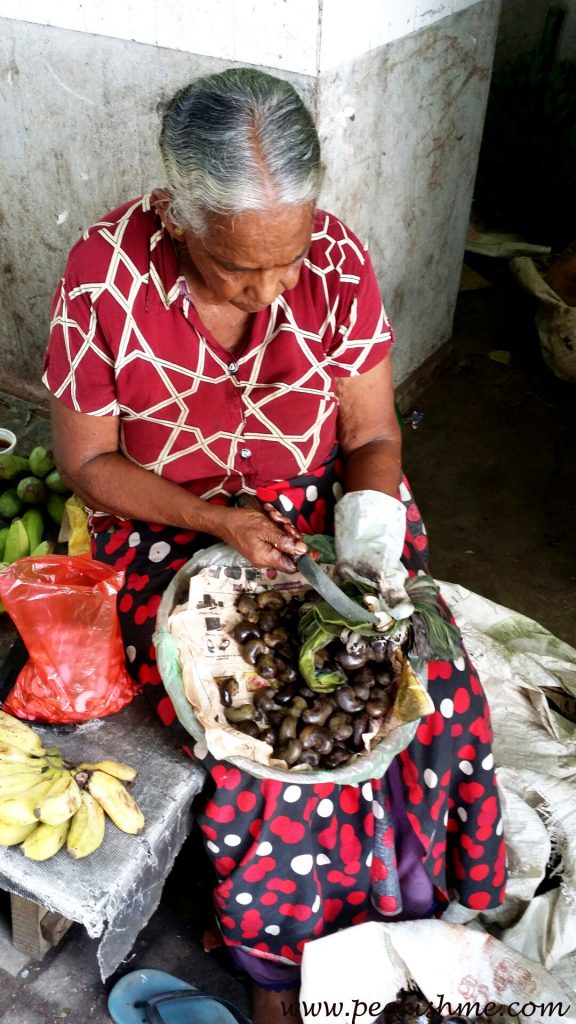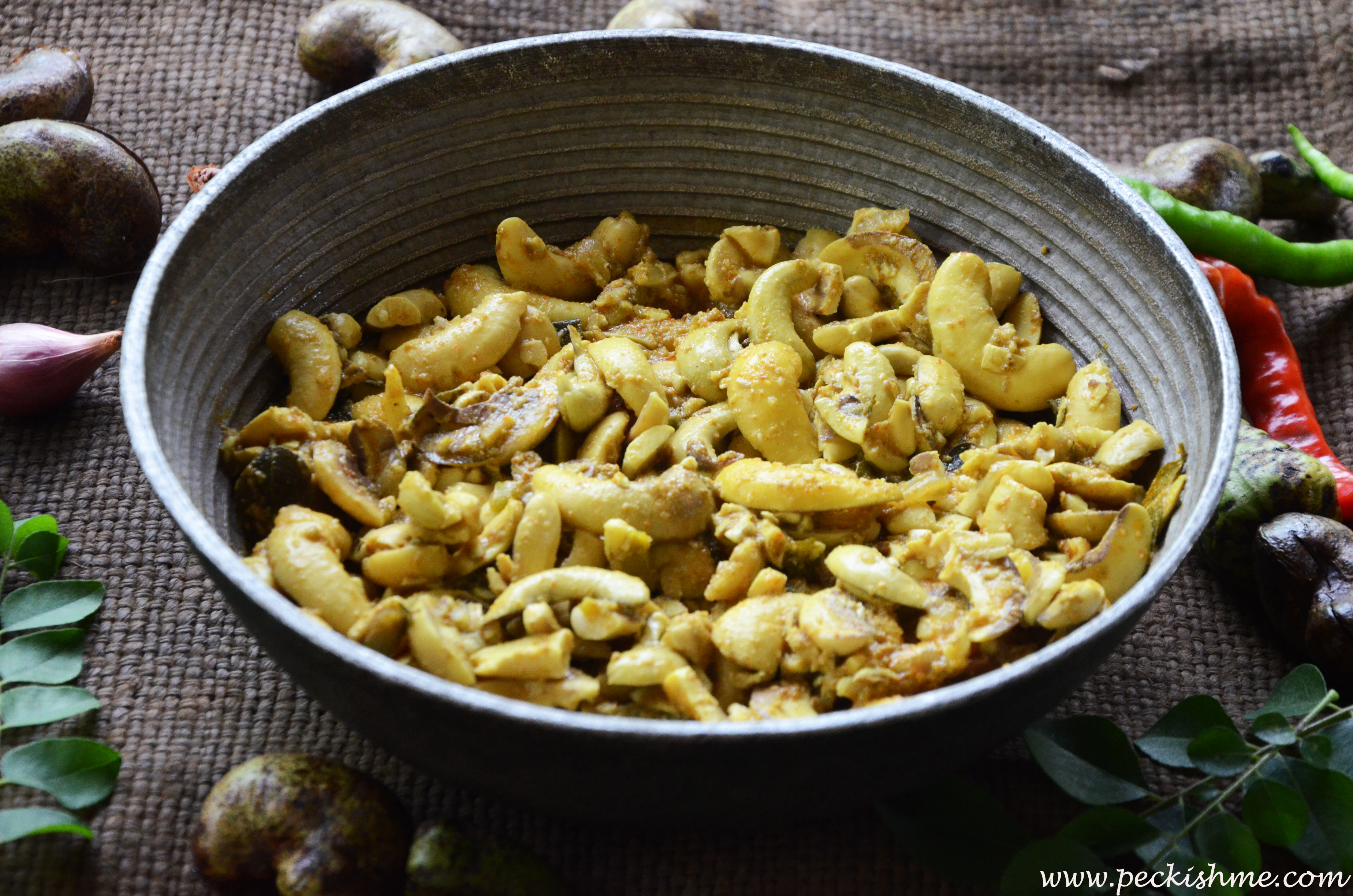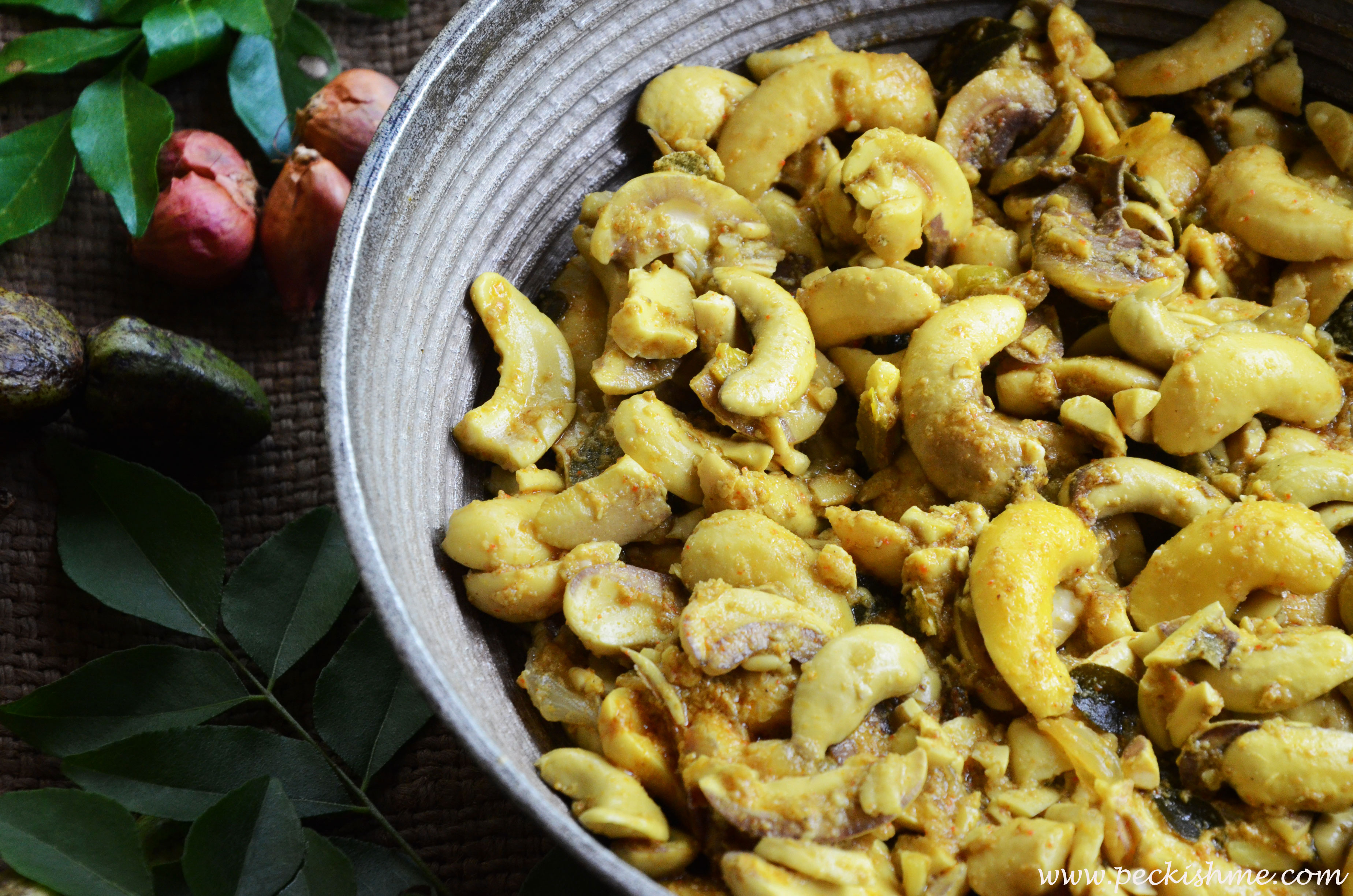We Sri Lankans not only eat our cashew. We cook them.
April brings with it an abundant harvest of cashew nuts, strewn under trees for the picking. Several years back when cashew was not cultivated as a commercial crop, little girls and boys would make a competition out of it, seeing as to who would collect the most of those little hard nuggets that can later be husked to reveal the creamy treats inside. They would then take their treasures home and give it to their mothers and grandmothers who would in turn sit with a curved dagger at their hands, husking and soaking the goodies in clean water to make it ready for the creamy Sri Lankan cashew nut curry that we so much love.
One has to be careful though. The sap of the raw cashew is prone to stain fingers and everything it touches for weeks onwards. Of course our grandmothers used to cooking on wood-fired stoves blowing into the ashes with their mouths and dealing with soot covered pots and pans day in day out are very hard to intimidate with the threat of a stain.
But alas, the days of cashew picking are over. Everything is commercialized and the cashews collected from the Sri Lankan soil are either exported or sold to the highest bidders locally. But if you so happen to venture towards a Sunday pola (a farmers’ market of sorts), you can still see elderly ladies with the curved daggers and stained rags cutting and cleaning the cashews deftly with their sap-darkened fingers, producing what we would call ‘Kiri Kaju’. Translated to ‘Milk cashews’ I believe the name comes from the milky taste of these unprocessed cashews, soft and supple and very very fresh. 100 cashews would be prized around LKR 500. This I believe is still a steal compared to the market prices.
For the authentic Sri Lankan cashew curry, what you would require are these raw cashews. Since the curry requires the cashews to be super soft and practically melt in the mouth, the ‘kiri kaju’ is idea for the purpose. Of course it goes without saying that in the city, kiri kaju is practically impossible to find. Some would therefore resort to cooking the processed cashews, cooking them in the pressure cooker to make them soft first while I prefer to use the real deal, with its virgin suppleness and delicate flavor.
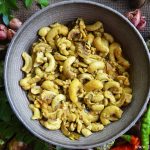
- Yield: 4 servings
- Prep Time: 2h 00 min
- Cook Time: 20 minutes
- Serving: 4 servings
Sri Lankan Cashew nut curry
Ingredients
- Cashew - 300g, raw
- Garlic - 5-6 cloves, minced
- Ginger - ½ tsp, minced
- Onion - 1, chopped
- Turmeric - 3/4 tsp
- Sri Lankan Curry powder - 1 tsp, raw
- Dried Black pepper - 5, whole
- Curry leaves - 1 sprig
- Cloves - 4
- Cardamom - 4
- Coconut oil - 1 tblsp
- Coconut milk - 2 cups, thin
- Coconut milk - 2 cups, thick
- Chili powder - ½ tsp
- Salt - To taste
Instructions
- Soak the cashews for about 2 hours. Drain and set aside.
- In a clay pot, combine all ingredients (except black pepper corns, salt and thick coconut milk) together.
- Add the thin coconut milk. Cook on moderate heat until the liquid reduces by half.
- Add in the thick coconut milk. Reduce heat and simmer on low until the mixture has thickened.
- Add salt to taste and the black peppercorns.
- Serve hot with warm rice.
This thick, luxuriant Sri Lankan cashew nut curry is a treat to the taste buds. Bringing together the true flavors of Sri Lanka with cardamom, clove and coconut, it marries the creamy cashews to perfection with other condiments, not overpowering, simply complementing. The cashews are simply melt in the mouth – creamy, silky and velvety upon the tongue, mixing with the velvety exoticness of the coconut milk. The curry leaf simply fragrances while the coriander, the fennel and the cumin in the Sri Lankan curry powder pierces through the thickness of it all and laces the fringes with beauty and delicateness. The faint whiff of turmeric seeps the taste buds in a loving embrace while the chili piques and teases, indulging, fierce and proud.
Avurudu calls our best dishes to the table and I can’t imagine an Avurudu without this cashew curry.
Cooking tips
- Don’t stir the curry too much. Since the cashews are already very soft in nature, it tends to break if tampered with.
- To obtain thick coconut milk, combine 2 cups of water with 1 cup of scraped coconut. Mush together and strain out the milk.
- To get thin coconut milk, take the strained out coconut particles, blend together with 2 cups of water. Strain out the milk.

